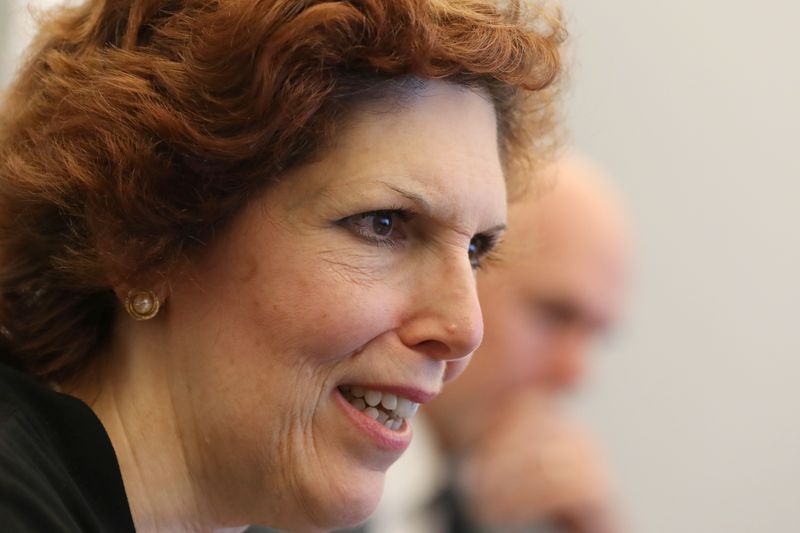(Reuters) – While the U.S. economy has seen improvement in areas that benefit from low interest rates, such as housing, there are areas that will take longer to rebound and that will depend on the coronavirus, Cleveland Federal Reserve Bank President Loretta Mester said Monday.
For example, some people are able to work at home and there has been an increase in auto sales. But industries in the service sector, including restaurants, small businesses and others that require face-to-face interaction, are lagging, Mester said.
“It’s almost like a tale of two cities,” Mester said while answering questions during a webinar organized by the African American Chamber of Commerce of Western Pennsylvania. “You have a lot of the economy now where activity is picking up, but you have a great part of the economy – travel, leisure and hospitality – where you’re not seeing a pickup. I think that’s going to continue for some time.”
Mester said she expects the economy could end the year with the unemployment rate between 7% and 8%. Inflation could end the year above 1% but still well below the Fed’s 2% target, Mester told reporters. “So it’s still far from both of our goals, I’d say, for both employment and inflation,” Mester said.
Monetary policy will remain accommodative for some time to support the economy through the “fragile” recovery. Low interest rates are also in line with the Fed’s new framework, which puts more emphasis on closing shortfalls in employment and letting inflation run modestly above 2% for some time.
The Fed’s asset purchases are also providing accommodation and further changes to the program will depend on how the economy goes, Mester said. “I think right now we’re well calibrated,” she said. “I think monetary policy is doing what it should.”
(Reporting by Jonnelle Marte; Editing by Cynthia Osterman and Aurora Ellis)





















